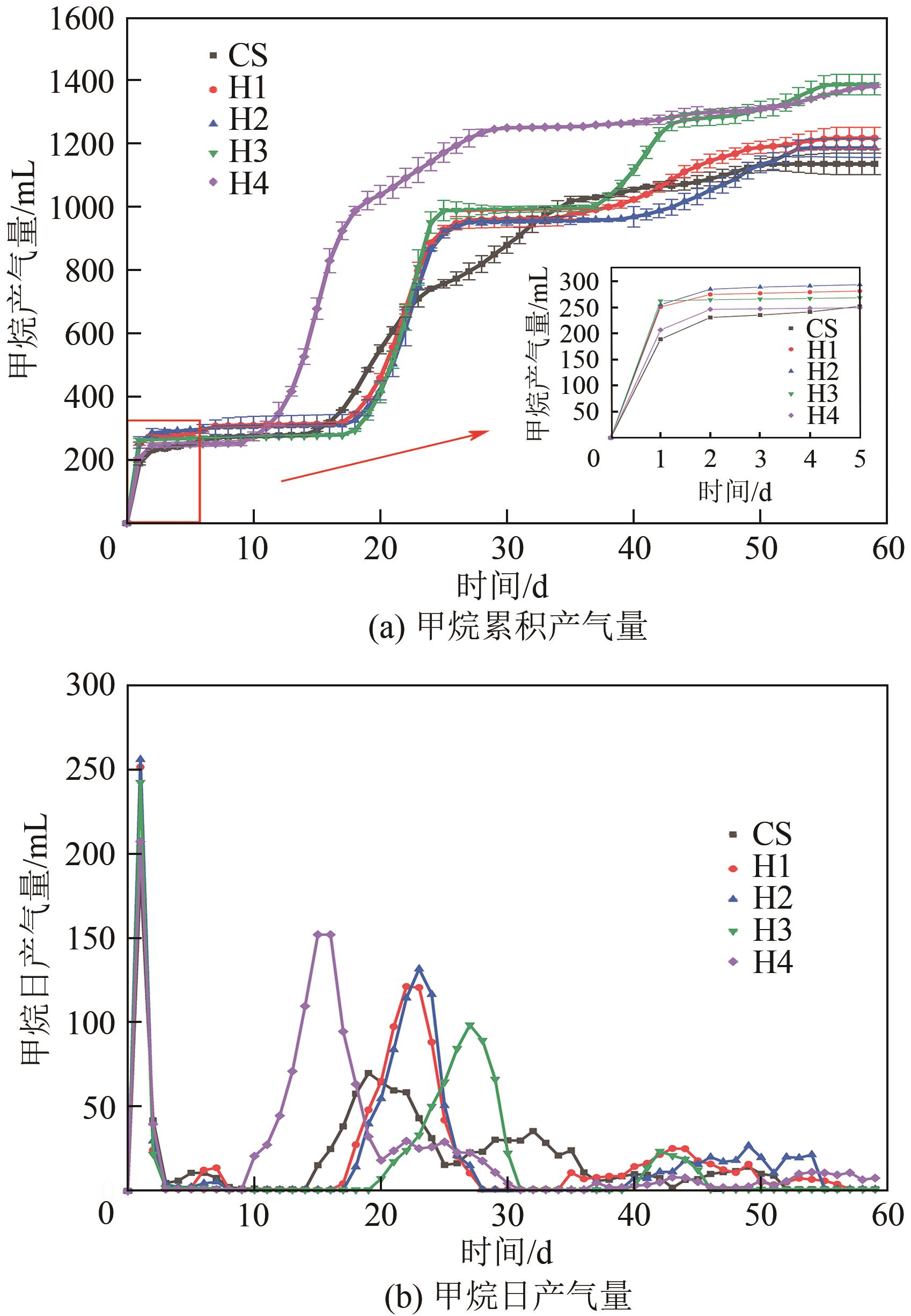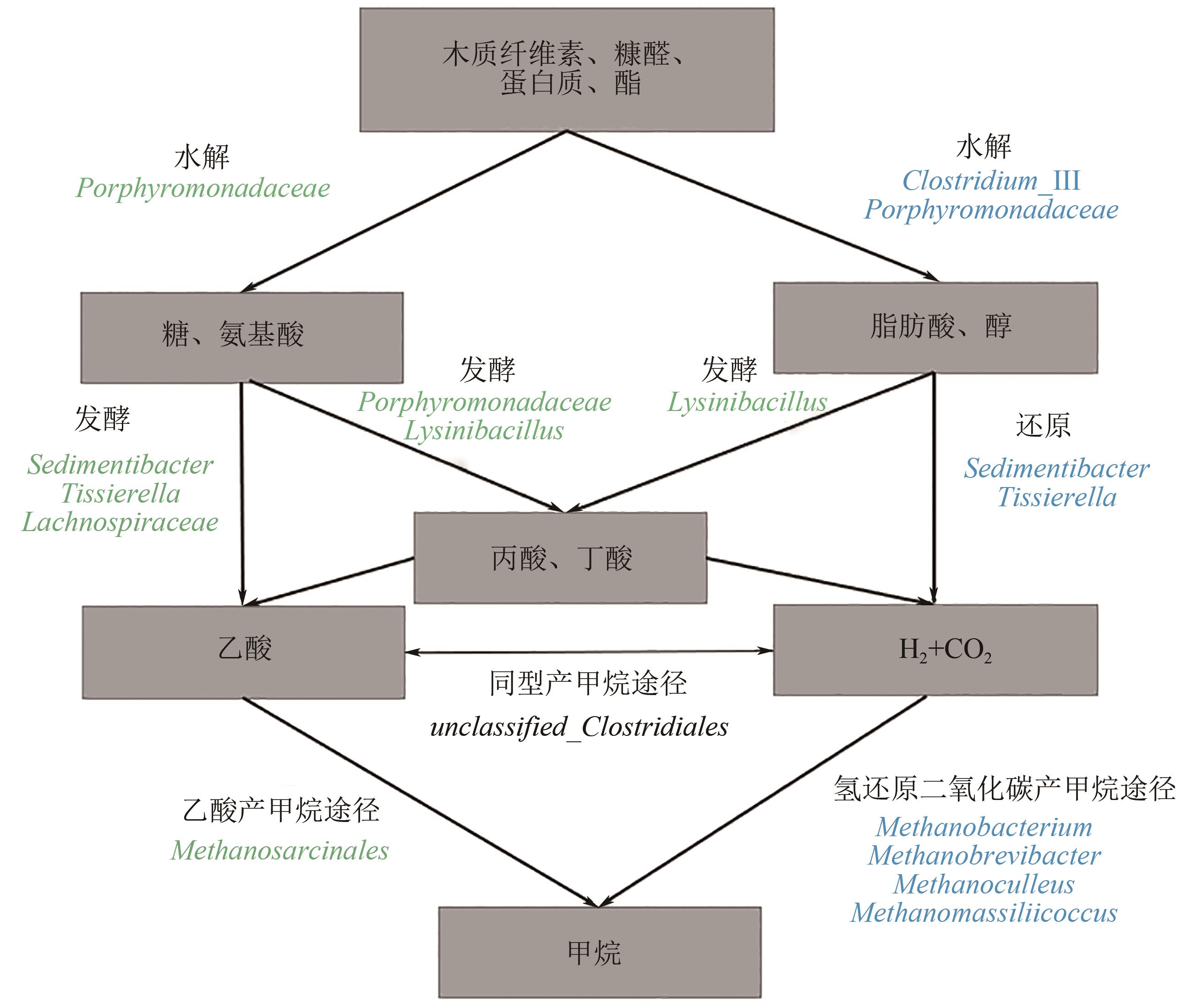| 1 |
TAN Zhao, LI Xiang, YANG Chunping, et al. Inhibition and disinhibition of 5-hydroxymethylfurfural in anaerobic fermentation: A review[J]. Chemical Engineering Journal, 2021, 424: 130560.
|
| 2 |
BELETE Yonas Zeslase, Stefan LEU, BOUSSIBA Sammy, et al. Characterization and utilization of hydrothermal carbonization aqueous phase as nutrient source for microalgal growth[J]. Bioresource Technology, 2019, 290: 121758.
|
| 3 |
ZHANG Deli, WANG Fang, SHEN Xiuli, et al. Comparison study on fuel properties of hydrochars produced from corn stalk and corn stalk digestate[J]. Energy, 2018, 165: 527-536.
|
| 4 |
阚玉娜, 陈冰炜, 翟胜丞, 等. 生物质水热碳化及其功能化应用研究进展[J]. 化工新型材料, 2021, 49(12): 43-49.
|
|
KAN Yuna, CHEN Bingwei, ZHAI Shengcheng, et al. Research progress on hydrothermal carbonization of biomass and its functional application[J]. New Chemical Materials, 2021, 49(12): 43-49.
|
| 5 |
KLINKE H B, THOMSEN A B, AHRING B K. Inhibition of ethanol-producing yeast and bacteria by degradation products produced during pre-treatment of biomass[J]. Applied Microbiology and Biotechnology, 2004, 66(1): 10-26.
|
| 6 |
DANSO-BOATENG E, SHAMA G, WHEATLEY A D, et al. Hydrothermal carbonization of sewage sludge: Effect of process conditions on product characteristics and methane production[J]. Bioresource Technology, 2015, 177:318-327.
|
| 7 |
ARAGÓN-BRICEÑO C, ROSS A B, CAMARGO-VALERO M A. Evaluation and comparison of product yields and bio-methane potential in sewage digestate following hydrothermal treatment[J]. Applied Energy, 2017, 208: 1357-1369.
|
| 8 |
ERDOGAN Ezgi, ATILA Buse, MUMME Jan, et al. Characterization of products from hydrothermal carbonization of orange pomace including anaerobic digestibility of process liquor[J]. Bioresource Technology, 2015, 196: 35-42.
|
| 9 |
CHOE Ungyong, MUSTAFA Ahmed M, LIN Hongjian, et al. Effect of bamboo hydrochar on anaerobic digestion of fish processing waste for biogas production[J]. Bioresource Technology, 2019, 283: 340-349.
|
| 10 |
POSMANIK Roy, LABATUT Rodrigo A, KIM Andrew H, et al. Coupling hydrothermal liquefaction and anaerobic digestion for energy valorization from model biomass feedstocks[J]. Bioresource Technology, 2017, 233: 134-143.
|
| 11 |
STEINBACH David, KRUSE Andrea, Jörg SAUER. Pretreatment technologies of lignocellulosic biomass in water in view of furfural and 5-hydroxymethylfurfural production-A review[J]. Biomass Conversion and Biorefinery, 2017, 7(2): 247-274.
|
| 12 |
TASNIM Farzana, IQBAL Salma A, CHOWDHURY Aminur Rashid. Biogas production from anaerobic co-digestion of cow manure with kitchen waste and Water Hyacinth[J]. Renewable Energy, 2017, 109: 434-439.
|
| 13 |
LU Xiaowei, PELLECHIA Perry J, FLORA Joseph R V, et al. Influence of reaction time and temperature on product formation and characteristics associated with the hydrothermal carbonization of cellulose[J]. Bioresource Technology, 2013, 138: 180-190.
|
| 14 |
DASHTBAN Mehdi, GILBERT Allan, FATEHI Pedram. Recent advancements in the production of hydroxymethylfurfural[J]. RSC Adv, 2014, 4(4): 2037-2050.
|
| 15 |
WANG Fang, YI Weiming, ZHANG Deli, et al. Anaerobic co-digestion of corn stover and wastewater from hydrothermal carbonation[J]. Bioresource Technology, 2020, 315: 123788.
|
| 16 |
PAN Xiaohui, ZHANG Yun, HE Chao, et al. Enhancement of anaerobic fermentation with corn straw by pig bone derived biochar[J]. Science of the Total Environment, 2022, 829: 154326.
|
| 17 |
KAFLE Gopi Krishna, KIM Sang Hun. Sludge exchange process on two serial CSTRs anaerobic digestions: Process failure and recovery[J]. Bioresource Technology, 2011, 102(13): 6815-6822.
|
| 18 |
TAHERZADEH M J, GUSTAFSSON L, NIKLASSON C, et al. Physiological effects of 5-hydroxymethylfurfural on Saccharomyces cerevisiae [J]. Applied Microbiology and Biotechnology, 2000, 53(6): 701-708.
|
| 19 |
MUÑOZ-PÁEZ Karla M, ALVARADO-MICHI Elba L, Germán BUITRÓN, et al. Distinct effects of furfural, hydroxymethylfurfural and its mixtures on dark fermentation hydrogen production and microbial structure of a mixed culture[J]. International Journal of Hydrogen Energy, 2019, 44(4): 2289-2297.
|
| 20 |
AKUZAWA Masateru, HORI Tomoyuki, HARUTA Shin, et al. Distinctive responses of metabolically active microbiota to acidification in a thermophilic anaerobic digester[J]. Microbial Ecology, 2011, 61(3): 595-605.
|
| 21 |
DI Lu, ZHANG Quanguo, WANG Fang, et al. Effect of nano-Fe3O4 biochar on anaerobic digestion of chicken manure under high ammonia nitrogen concentration[J]. Journal of Cleaner Production, 2022, 375: 134107.
|
| 22 |
陈广银, 郑正, 常志州, 等. 不同氮源对麦秆厌氧消化过程的影响[J]. 中国环境科学, 2011, 31(1): 73-77.
|
|
CHEN Guangyin, ZHENG Zheng, CHANG Zhizhou, et al. Effects of nitrogen sources on anaerobic digestion process of wheat straw[J]. China Environmental Science, 2011, 31(1): 73-77.
|
| 23 |
LI Xiang, CHEN Hong, HU Lanfang, et al. Pilot-scale waste activated sludge alkaline fermentation, fermentation liquid separation, and application of fermentation liquid to improve biological nutrient removal[J]. Environmental Science & Technology, 2011, 45(5): 1834-1839.
|
| 24 |
FRANKE-WHITTLE Ingrid H, WALTER Andreas, EBNER Christian, et al. Investigation into the effect of high concentrations of volatile fatty acids in anaerobic digestion on methanogenic communities[J]. Waste Management, 2014, 34(11): 2080-2089.
|
| 25 |
乔江涛, 郭荣波, 袁宪正, 等. 玉米秸秆厌氧降解复合菌系的微生物群落结构[J]. 环境科学, 2013, 34(4): 1531-1539.
|
|
QIAO Jiangtao, GUO Rongbo, YUAN Xianzheng, et al. Phylogenetic analysis of methanogenic corn stalk degrading microbial communities[J]. Environmental Science, 2013, 34(4): 1531-1539.
|
| 26 |
YANG Fuli, LI Wenzhe, LIU Changyu, et al. Impact of total carbon/sulfate on methane production and sulfate removal from co-digestion of sulfate-containing wastewater and corn stalk[J]. Journal of Environmental Management, 2019, 243: 411-418.
|
| 27 |
BUKHTIYAROVA Polina A, ANTSIFEROV Dmitry V, BRASSEUR Gael, et al. Isolation, characterization, and genome insights into an anaerobic sulfidogenic Tissierella bacterium from Cu-bearing coins[J]. Anaerobe, 2019, 56: 66-77.
|
| 28 |
GUO Zechong, ZHOU Aijuan, YANG Chunxue, et al. Enhanced short chain fatty acids production from waste activated sludge conditioning with typical agricultural residues: Carbon source composition regulates community functions[J]. Biotechnology for Biofuels, 2015, 8(1): 192.
|
| 29 |
HAHNKE Sarah, MAUS Irena, WIBBERG Daniel, et al. Complete genome sequence of the novel Porphyromonadaceae bacterium strain ING2-E5B isolated from a mesophilic lab-scale biogas reactor[J]. Journal of Biotechnology, 2015, 193: 34-36.
|
| 30 |
Consolación SÁNCHEZ-SÁNCHEZ, Mercedes ARANDA-MEDINA, Alicia RODRÍGUEZ, et al. Development of real-time PCR methods for the quantification of Methanoculleus, Methanosarcina and Methanobacterium in anaerobic digestion[J]. Journal of Microbiological Methods, 2022, 199: 106529.
|
| 31 |
SAHA Shouvik, KURADE Mayur B, Geon-Soo HA, et al. Syntrophic metabolism facilitates Methanosarcina-led methanation in the anaerobic digestion of lipidic slaughterhouse waste[J]. Bioresource Technology, 2021, 335: 125250.
|
| 32 |
SILVA A R, GOMES J C, SALVADOR A F, et al. Ciprofloxacin, diclofenac, ibuprofen and 17α-ethinylestradiol differentially affect the activity of acetogens and methanogens in anaerobic communities[J]. Ecotoxicology, 2020, 29(7): 866-875.
|
| 33 |
GRANADA Camille E, HASAN Camila, MARDER Munique, et al. Biogas from slaughterhouse wastewater anaerobic digestion is driven by the archaeal family Methanobacteriaceae and bacterial families Porphyromonadaceae and Tissierellaceae [J]. Renewable Energy, 2018, 118: 840-846.
|
 ), 邸璐1,2, 王芳1,2(
), 邸璐1,2, 王芳1,2( ), 张德俐1,2(
), 张德俐1,2( ), 易维明1,2, 李永军1,2, 沈秀丽3
), 易维明1,2, 李永军1,2, 沈秀丽3
 ), DI Lu1,2, WANG Fang1,2(
), DI Lu1,2, WANG Fang1,2( ), ZHANG Deli1,2(
), ZHANG Deli1,2( ), YI Weiming1,2, LI Yongjun1,2, SHEN Xiuli3
), YI Weiming1,2, LI Yongjun1,2, SHEN Xiuli3





